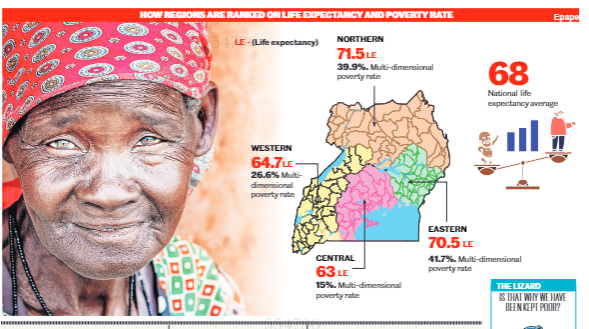2024 census data was unrealistic and manipulated, FDC tells Ubos

Opposition FDC party deputy secretary for publicity Warid Lubega Mulindwa. PHOTO/COURTESY
What you need to know:
- The 2024 national census report indicated wrong figures for some tribal groups.
The Opposition Forum for Democratic Change (FDC) has rubbished the recently released 2024 National Population and Housing Census report, calling for a repeat of the entire exercise.
The party deputy secretary for publicity, Mr Warid Lubega Mulindwa, said the report released by Uganda Bureau of statistics (Ubos) on Thursday last week is inaccurate as it contains contradicting population figures which make it difficult to be relied on.
“We are concerned about the accuracy of the Uganda National Housing and Population Census 2024 report, we think that the statistics are unrealistic and manipulated,” Mr Mulindwa said.
The 2024 report erroneously showed the population of Acholi dropped from 2,131,443 in 2014 to 1,941,913 while it showed the Bagisu population had fallen from 2,390,975 to 2,096,149 in 2024.
However, the bureau later corrected the error stating that the 2014 National Population and Housing Census, the population of Bagisu was at 1,647,382 and Acholi 1,470,884.
The 2024 report also indicated wrong figures for the Bakiga and the Langi in 2014 showing 1,470,884 for the Bakiga and 1,647,382 for the Langi instead of the 2,390,975 for the Bakiga and 2,131,443 for the Langi.
The current population for the Bakiga stands at 2,947,837 and the Langi stands at 2,703,277.
The irregularities sparked public debate on social media, radio and television platforms, raising questions about the accuracy of the report.
“This is a very serious matter, as the census data is crucial for informing policy decisions, development planning, and resource allocation in Uganda,” Mr Mulindwa said while addressing journalists at the party headquarters in Kampala yesterday.
He said the census statistics must be accurate because the National Planning Authority (NPA) relies heavily on them to inform its planning decisions for the country because census provides critical data on population size, distribution, and characteristics which are essential for effective planning.
Mr Mulindwa also said the Electoral Commission (EC) also relies on population data from the national census to inform key decisions regarding adjusting electoral boundaries, polling station demarcation, and updating voter registers to reflect changes in population distribution, among others.
Mr Mulindwa said to address these concerns, it is essential to review the census methodology, data collection processes, and quality control measures.
FDC also tasked Ubos to provide clear explanations and evidence to support the accuracy of the report.
“The exercise was marred by different shortcomings. Many people were not counted as a result of lack of capacity building on the part of enumerators significantly impacted on the accuracy and reliability of the census data. The enumerators didn’t understand the census data, methodology, questionnaires and data collection procedures. They didn’t know how to operate the Tabs (computers) where they were supposed to record the information answered yet there was no manual system of information sharing,” Mr Mulindwa emphasized.
However, Mr Chris Mukiza, the Ubos executive director responding to the hot debate on his X handle said the mix-up was a regrettable human error and clarified that every tribe experienced growth over the past 10 years.
“The population figures in census 2014 for Bakiga and Bagisu, Langi and Acholi were erroneously interchanged at the time of printing. Thus every tribe experienced growth over the past 10 years,” Mr Mukiza said.




